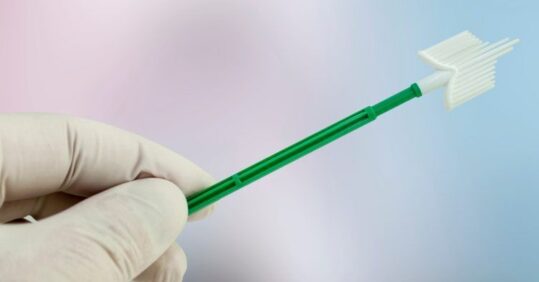Pressure on general practice leads to lowest cervical screening rates in ten years

The proportion of women who have never had screening for cervical cancer or not up to date with their tests in England is the highest in 10 years, amid mounting pressures on general practice, NHS England data has revealed.
The data shows that approximately 4.6m women between the ages of 25 and 64, around a third of this group, have never been screened for cervical cancer or are not up to date with their tests. This is the highest rate in a decade.
Cervical cancer is highly preventable through human papillomavirus (HPV) vaccination and regular preventative screening.
However, around 3,200 women each year are diagnosed with the condition: a quarter of whom die.
The data comes as HPV vaccination rates among teenagers is also falling. In the 2021-22 academic year the total vaccination rate was down by 7% in year-8 girls at school and down by 8.7% among year-8 boys.
Related Article: England’s CNO to launch nursing strategy ‘later this year’
Kate Sanger, head of policy at cervical cancer charity Jo’s Cervical Cancer trust, told Nursing in Practice that the decline in cervical screening rates was due largely to increased pressure on general practice, making it harder for patients to book appointments.
‘The NHS is under increasing pressure; its hard for women to get an appointment,’ she said.
And while the coronovirus pandemic had impacted the delivery of services, Ms Sanger suggests that some access issues existed long before Covid.
‘There are lots of reasons that screening can be difficult for women. They may be scared or embarrassed. And for the physically disabled, they weren’t able to attend a screening pre-Covid, and it’s not better now. We need to be looking at how to remove those barriers to access.’
In response, the NHS has issued a call for anyone who is eligible for screening to come forward for a test. Last year more than five million invites to screening appointments were sent, up 10% from pre-pandemic levels. However, this has not arrested the fall in uptake.
When asked what GP nurses could do to help support uptake, Ms Sanger said that nurses should try to ‘understand why women might find it difficult and understand where their non-attenders are in that area.’
GP and NHS interim medical director for primary care, Dr Kiren Collison, said: ‘We have made great progress on our Cervical Screening Programme and the combined effects of the HPV vaccine and the new, more sensitive way of screening for cervical cancer means that we have the opportunity to eliminate cervical cancer altogether.
‘Having the potential to completely eradicate a disease that affects thousands of people every year is remarkable, but in order to do this, it is vital that people take up the offer of a test.’
Related Article: More nursing apprenticeships and changes to student travel expenses
This comes as Jo’s Cervical Cancer Trust launched the annual Cervical Cancer Prevention Week with a report which found that only 16% of medical professionals working on cervical cancer believe that enough is being done to increase uptake of screening. Additionally, only 20% thought enough was being done to ensure HPV vaccination rates remained high.
Cervical Cancer Awareness Week runs from Monday 23rd to the 29th of January and includes the launch of a campaign to end cervical cancer.
Ms Sanger said that ‘lots of other countries have made commitments to eradicate cervical cancer following the WHO’ and while the UK is making some advancements it is ‘just slow to adopt innovation.’
The latest UKHSA report on the routine adolescent Human Papillomavirus (HPV) immunisation programme for 2021/22, which is primarily delivered in schools, shows that coverage in year 8 and year 9 pupils is yet to return to pre-pandemic levels.
Related Article: Nurses given ‘range of leadership opportunities’ in NHS 10-year plan
Dr Vanessa Saliba, consultant epidemiologist at the UKHSA, said: ‘Children and young people who have missed out on their HPV vaccinations should contact their school nurse, school immunisation team or GP surgery to arrange a catch-up – they remain eligible until their 25th birthday.
‘The HPV vaccine is available for girls and boys in year 8 and we encourage everyone eligible to take up this potentially life-saving vaccine when offered. In recent years we have seen vaccine coverage fall due to the challenges posed by the pandemic.’

See how our symptom tool can help you make better sense of patient presentations
Click here to search a symptom




